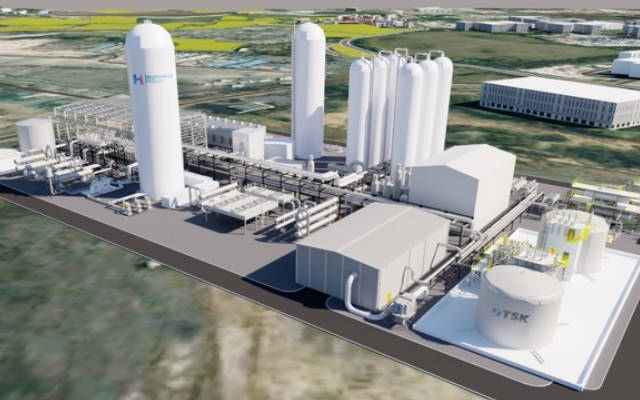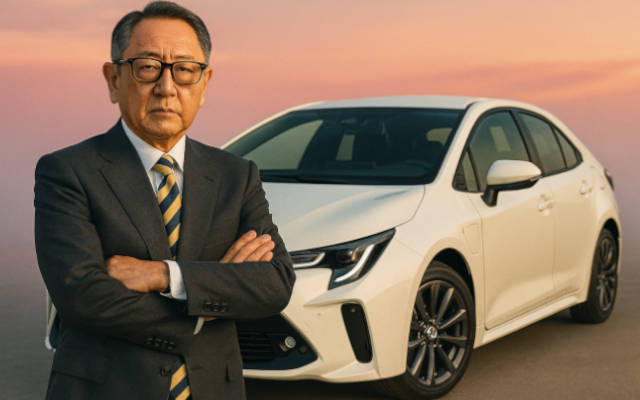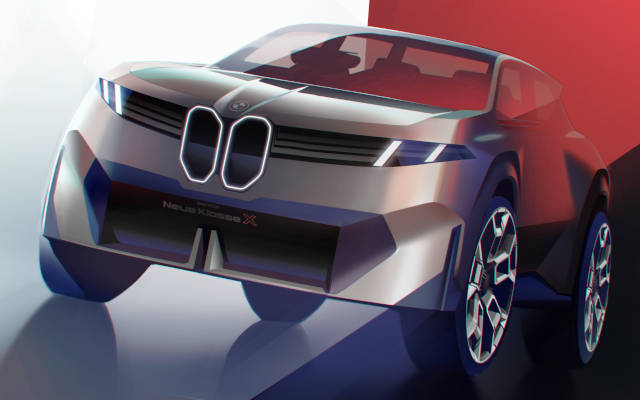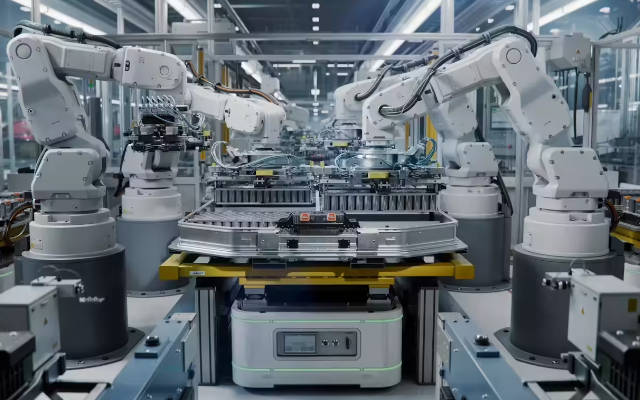 EDITOR'S PICK
EDITOR'S PICK
SAIC's MG4 Leads World in Deployment of Semi-Solid-State Battery
17 Oct 2025 | Synopsis
 China's SAIC MG has launched the MG4, the first mass-produced EV with a semi-solid-state battery using manganese-based lithium-ion chemistry. This breakthrough offers higher energy density, improved safety, and environmental benefits over traditional LFP batteries. Approved for sale in China, the MG4 signals a major leap in EV tech - underscoring China's lead in battery innovation and cost-effective electric mobility
China's SAIC MG has launched the MG4, the first mass-produced EV with a semi-solid-state battery using manganese-based lithium-ion chemistry. This breakthrough offers higher energy density, improved safety, and environmental benefits over traditional LFP batteries. Approved for sale in China, the MG4 signals a major leap in EV tech - underscoring China's lead in battery innovation and cost-effective electric mobilityLiquid Air Could Be the Clean Energy Storage Breakthrough the Planet Needs
16 Oct 2025 | Synopsis
 Liquid air energy storage (LAES) cools and compresses air into a liquid, storing renewable energy for later use. It's scalable, low-impact, and ideal for balancing intermittent sources like wind and solar. When demand rises, the liquid air is warmed, expands, and drives turbines to generate electricity. LAES could be a breakthrough for clean energy storage with 50-70% efficiency, offering long-duration capacity without geographic limits or toxic materials.
Liquid air energy storage (LAES) cools and compresses air into a liquid, storing renewable energy for later use. It's scalable, low-impact, and ideal for balancing intermittent sources like wind and solar. When demand rises, the liquid air is warmed, expands, and drives turbines to generate electricity. LAES could be a breakthrough for clean energy storage with 50-70% efficiency, offering long-duration capacity without geographic limits or toxic materials.Toyota's Chairman Said That EVs Pollute More Than Hybrids Do, So Here's What Research Says
16 Oct 2025 | Synopsis
 Toyota Chairman Akio Toyoda claims EVs pollute more than hybrids due to battery production and Japan's fossil-fuel-heavy grid. Researchers counter that EVs offset their higher initial emissions after 20,000-28,000 miles and outperform hybrids long-term - even on coal-heavy grids. Studies show EVs emit less CO2 per mile and will improve further with battery recycling.
Toyota Chairman Akio Toyoda claims EVs pollute more than hybrids due to battery production and Japan's fossil-fuel-heavy grid. Researchers counter that EVs offset their higher initial emissions after 20,000-28,000 miles and outperform hybrids long-term - even on coal-heavy grids. Studies show EVs emit less CO2 per mile and will improve further with battery recycling.What If BMW Stopped Making Electric Cars? The Harsh Reality Behind That Idea
16 Oct 2025 | Synopsis
 If BMW quit making EVs, it would face regulatory bans, lose tech leadership, alienate younger buyers, and shrink its market share. EVs drive growth, innovation, and brand relevance. Abandoning them would hurt perception, supply chains, and investor confidence. BMW's legacy is built on progress - ditching electrification would erase that identity
If BMW quit making EVs, it would face regulatory bans, lose tech leadership, alienate younger buyers, and shrink its market share. EVs drive growth, innovation, and brand relevance. Abandoning them would hurt perception, supply chains, and investor confidence. BMW's legacy is built on progress - ditching electrification would erase that identityPlummeting Battery Prices Will Push BEVs Below Parity Soon
16 Oct 2025 | Synopsis
 Battery costs are falling so fast that battery electric vehicles (BEVs) could reach price parity with internal combustion vehicles within 2-4 years in Europe, and in China some models have already done so. The author expects battery pack costs to drop ~70% over the next five years, which would allow automakers to slash BEV retail prices while maintaining margins. That shift may force more aggressive pricing competition and encourage faster EV adoption.
Battery costs are falling so fast that battery electric vehicles (BEVs) could reach price parity with internal combustion vehicles within 2-4 years in Europe, and in China some models have already done so. The author expects battery pack costs to drop ~70% over the next five years, which would allow automakers to slash BEV retail prices while maintaining margins. That shift may force more aggressive pricing competition and encourage faster EV adoption.
 EVWorld Exclusive
EVWorld Exclusive
Unlocking Heat's Hidden Potential: How a Nanoscale Discovery Could Transform Everyday Tech
24 Oct 2025 |  A recent nanoscale physics breakthrough reveals heat can transfer across tiny gaps far more efficiently than expected - up to 100 times greater than classical predictions. This could revolutionize cooling and energy systems in electronics, EVs, and smart appliances. While engineering challenges remain, early applications may emerge within 3-5 years, with broader consumer adoption possible in the next decade. The future of heat management may be silent, solid-state, and radically efficient.
A recent nanoscale physics breakthrough reveals heat can transfer across tiny gaps far more efficiently than expected - up to 100 times greater than classical predictions. This could revolutionize cooling and energy systems in electronics, EVs, and smart appliances. While engineering challenges remain, early applications may emerge within 3-5 years, with broader consumer adoption possible in the next decade. The future of heat management may be silent, solid-state, and radically efficient.
Turning the Energy Crunch into a Smart Grid Revolution
24 Oct 2025 |  America's energy crunch is not about supply - it's about coordination. Virtual power plants and vehicle-to-grid systems offer a scalable, software-driven solution to rising demand from AI, EVs, and climate volatility. By turning homes, vehicles, and businesses into active grid assets, and aligning policy with technology, the U.S. can build a smarter, more resilient energy future without building more power plants. The tools exist - now it's time to connect them.
America's energy crunch is not about supply - it's about coordination. Virtual power plants and vehicle-to-grid systems offer a scalable, software-driven solution to rising demand from AI, EVs, and climate volatility. By turning homes, vehicles, and businesses into active grid assets, and aligning policy with technology, the U.S. can build a smarter, more resilient energy future without building more power plants. The tools exist - now it's time to connect them.
Auto Retail in 2025: Bridging the Trust Gap Between Dealers and Buyers
24 Oct 2025 |  The 2025 Urban Science and Harris Poll report reveals a growing disconnect between dealers and buyers. While dealers embrace EVs, AI, and digital tools, many buyers remain cautious - especially about full electrification and online-only retail. Brand loyalty is weakening, and policy clarity is key to adoption. The future of auto retail depends on bridging trust, flexibility, and infrastructure gaps.
The 2025 Urban Science and Harris Poll report reveals a growing disconnect between dealers and buyers. While dealers embrace EVs, AI, and digital tools, many buyers remain cautious - especially about full electrification and online-only retail. Brand loyalty is weakening, and policy clarity is key to adoption. The future of auto retail depends on bridging trust, flexibility, and infrastructure gaps.
Electric Icons in the Making: Audi Concept C vs. Chevrolet Corvette EV
23 Oct 2025 |  Audi's Concept C previews a refined electric GT built on the mature PPE platform, likely arriving by 2026. Chevrolet's Corvette EV promises supercar performance but faces packaging and thermal challenges. Audi is closer to production; Corvette remains in early development. Both reflect divergent strategies in electrifying legacy sports cars, with Audi emphasizing platform maturity and Chevrolet pursuing brand continuity through engineering innovation.
Audi's Concept C previews a refined electric GT built on the mature PPE platform, likely arriving by 2026. Chevrolet's Corvette EV promises supercar performance but faces packaging and thermal challenges. Audi is closer to production; Corvette remains in early development. Both reflect divergent strategies in electrifying legacy sports cars, with Audi emphasizing platform maturity and Chevrolet pursuing brand continuity through engineering innovation.
Electrification Is Not an Oversimplification
23 Oct 2025 |  Despite critiques that the quest for global electrification is "simplistic", the transition is strategic and necessary. Grid upgrades, battery innovation, and tailored policies make electrification viable. Sodium-ion batteries and recycling reduce material risk. Compared to fossil fuels, electrification offers cleaner, safer, and more resilient systems. Complexity demands better design - not delay.
Despite critiques that the quest for global electrification is "simplistic", the transition is strategic and necessary. Grid upgrades, battery innovation, and tailored policies make electrification viable. Sodium-ion batteries and recycling reduce material risk. Compared to fossil fuels, electrification offers cleaner, safer, and more resilient systems. Complexity demands better design - not delay.
 24 Oct 2025 23:28:33 UTC |
RECENT PODCASTS
What Battery Chemistry Wins - Ontario Nuclear Investment - Battery Storage Boom
SEARCH RSSTREAM
 45 New Postings In Past 24 Hours
45 New Postings In Past 24 Hours
Category:mobility
Region:NoAmerica
Date:24 Oct 2025
Category:mobility
Region:NoAmerica
Date:24 Oct 2025
Category:mobility
Region:NoAmerica
Date:24 Oct 2025
Category:mobility
Region:NoAmerica
Date:24 Oct 2025
Category:finance
Region:NoAmerica
Date:24 Oct 2025
Category:mobility
Region:NoAmerica
Date:24 Oct 2025
Category:finance
Region:NoAmerica
Date:24 Oct 2025
Category:finance
Region:NoAmerica
Date:24 Oct 2025
Category:mobility
Region:NoAmerica
Date:24 Oct 2025
Category:mobility
Region:AsiaPacific
Date:24 Oct 2025
Category:mobility
Region:AsiaPacific
Date:24 Oct 2025
Category:mobility
Region:AsiaPacific
Date:24 Oct 2025
Category:finance
Region:NoAmerica
Date:24 Oct 2025
Category:finance
Region:AsiaPacific
Date:24 Oct 2025
Category:mobility
Region:AsiaPacific
Date:24 Oct 2025
Category:energy
Region:IndoAsia
Date:24 Oct 2025
Category:mobility
Region:IndoAsia
Date:24 Oct 2025
Category:review
Region:AustralPacific
Date:24 Oct 2025
Category:mobility
Region:Europe
Date:24 Oct 2025
Category:mobility
Region:NoAmerica
Date:24 Oct 2025